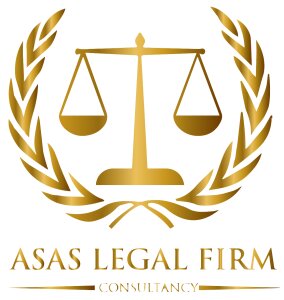Best Private Client Lawyers in Cairo
Share your needs with us, get contacted by law firms.
Free. Takes 2 min.
List of the best lawyers in Cairo, Egypt
About Private Client Law in Cairo, Egypt
Private Client law in Cairo, Egypt, focuses on providing legal services to individuals and families regarding their personal affairs, assets, and wealth. This area of the law covers matters such as estate planning, wills, inheritances, trusts, family business succession, taxation, and safeguarding assets. Given the unique combination of Egyptian law, Islamic Sharia principles, and family customs, Private Client law in Cairo often involves a tailored approach to meet clients' individual needs. Professional legal support helps clients ensure that their personal and financial interests are protected and that their wishes are implemented in accordance with local regulations.
Why You May Need a Lawyer
There are several situations in which you may require the expertise of a Private Client lawyer in Cairo. Common reasons include:
- Drafting or updating wills to specify the distribution of your assets.
- Administering and executing estates following a death in the family.
- Handling disputes among heirs or beneficiaries concerning inheritance shares.
- Establishing or managing family trusts and foundations for asset protection.
- Structuring business succession plans for family-owned companies.
- Ensuring compliance with Egyptian inheritance and tax laws.
- Advising on residency or citizenship issues that might affect succession arrangements.
- Assisting with charitable giving and philanthropy while optimizing tax benefits.
- Protecting personal assets against potential claims or future uncertainties.
Local Laws Overview
Egyptian Private Client law is primarily governed by the Egyptian Civil Code and the Family Law, strongly influenced by Islamic Sharia regarding inheritance and succession. Key aspects include:
- Inheritance Rules: Inheritance is strictly regulated, with fixed shares for heirs according to Sharia law. Both Muslims and non-Muslims are generally subject to these rules, though there are variations for non-Muslims.
- Wills: Egyptians can make wills, but only up to one third of their estate can be freely allocated to non-heirs. Any portion exceeding this is typically subject to the consent of legal heirs.
- Guardianship: Legal guardianship of minors is determined and supervised by the courts, especially in cases of inheritance or absence of a parent.
- Trusts and Foundations: While the traditional concept of trusts is not recognized under Egyptian law, alternative vehicles for asset protection and management can be employed, often requiring sophisticated structuring.
- Taxation: Egypt does not impose inheritance or gift taxes, but capital gains and other taxes may apply to certain asset transfers.
- Family Business Succession: Special considerations apply to the transition of family-owned businesses, often necessitating careful legal and tax planning.
Seeking legal advice is crucial to ensure compliance and avoid common pitfalls in these areas.
Frequently Asked Questions
What documents are required to draft a will in Cairo, Egypt?
To draft a will, you generally need valid identification documents, a clear statement of your assets and their locations, and the full details of your intended beneficiaries. The will must usually be written and formally registered before a competent authority.
Can I distribute my assets freely among my children?
Egyptian law imposes fixed shares for certain heirs based on Sharia principles. You are only free to distribute up to one third of your assets as you wish, but the remainder follows the prescribed inheritance rules.
What happens if someone dies without a will in Cairo?
If a person dies intestate, their estate will be divided among legal heirs in accordance with Egyptian inheritance laws, which follow predetermined shares for children, spouses, parents, and siblings.
Are stepchildren or adopted children recognized as heirs?
Under Egyptian law, stepchildren and adopted children do not have automatic inheritance rights unless specified in a will within the allowed one third portion.
Is it possible to disinherit a legal heir?
Disinheritance of legal heirs is not generally permitted beyond the share you can freely allocate in your will, which is typically one third of your estate.
What is the role of executors in estate administration?
Executors ensure that the terms of the will are carried out and the assets are distributed appropriately. They may need to obtain court approval to administer the estate.
How are foreign assets handled in Egyptian inheritance?
Foreign assets are generally subject to the laws of the country where they are located, but the distribution among heirs can be guided by Egyptian law if the deceased was domiciled in Egypt.
Can non-Muslims apply their own religious succession rules?
Non-Muslims may apply their community’s personal status law for succession, but, in practice, Egyptian law often prevails unless otherwise recognized by bilateral agreements or specific court approval.
Are there taxes on inherited property in Cairo, Egypt?
Currently, there are no direct inheritance or gift taxes in Egypt, but beneficiaries may incur capital gains or registration fees when transferring certain types of property.
How do I resolve disputes among heirs?
Disputes among heirs are typically resolved by negotiation or through court proceedings if an agreement cannot be reached. Involving a Private Client lawyer can help mediate and ensure a fair resolution.
Additional Resources
For further information or assistance, consider the following resources:
- Egyptian Ministry of Justice: Oversees legal registrations, notary matters, and inheritance court proceedings.
- Cairo Family Courts: Handles disputes related to inheritance, guardianship, and family matters.
- Egyptian Bar Association: Provides a directory of licensed lawyers who specialize in Private Client matters.
- Public Notary Offices: Facilitates will registration, certification, and documentation of powers of attorney.
- Embassies and Consulates: For foreigners, these entities can provide guidance regarding applicable laws and document authentication.
Next Steps
If you believe you need legal assistance in the field of Private Client in Cairo, Egypt, consider the following steps:
- Assess your needs and identify the specific issues or areas where you require help, such as wills, inheritance, or asset protection.
- Gather relevant documents, including IDs, existing wills, property titles, business documents, and family records.
- Contact a reputable lawyer or legal advisor who specializes in Private Client law. The Egyptian Bar Association can assist with referrals.
- Schedule a consultation to discuss your situation confidentially and explore your options for legal planning or action.
- Follow up with your lawyer to ensure that all necessary documents are drafted, witnessed, and registered as required by law.
- Keep your legal arrangements up to date as your circumstances or the laws change to guarantee ongoing protection of your interests.
Taking prompt action with qualified legal support will help you safeguard your family, property, and legacy in accordance with Egyptian law.
Lawzana helps you find the best lawyers and law firms in Cairo through a curated and pre-screened list of qualified legal professionals. Our platform offers rankings and detailed profiles of attorneys and law firms, allowing you to compare based on practice areas, including Private Client, experience, and client feedback.
Each profile includes a description of the firm's areas of practice, client reviews, team members and partners, year of establishment, spoken languages, office locations, contact information, social media presence, and any published articles or resources. Most firms on our platform speak English and are experienced in both local and international legal matters.
Get a quote from top-rated law firms in Cairo, Egypt — quickly, securely, and without unnecessary hassle.
Disclaimer:
The information provided on this page is for general informational purposes only and does not constitute legal advice. While we strive to ensure the accuracy and relevance of the content, legal information may change over time, and interpretations of the law can vary. You should always consult with a qualified legal professional for advice specific to your situation.
We disclaim all liability for actions taken or not taken based on the content of this page. If you believe any information is incorrect or outdated, please contact us, and we will review and update it where appropriate.
Browse private client law firms by service in Cairo, Egypt
Cairo, Egypt Attorneys in related practice areas.










